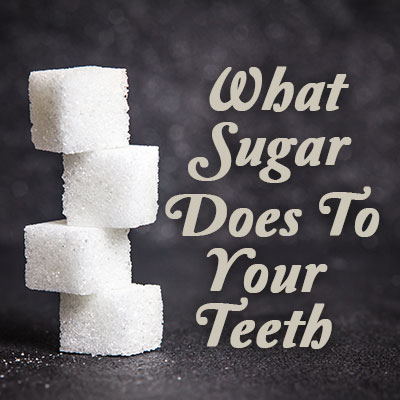 People in the United States eat more sugar than any other country in the world!
People in the United States eat more sugar than any other country in the world!
(It’s a good thing we also have some of the best dentists in the world.)
You hear it all the time: “sugar rots your teeth.” But is it true? What exactly does sugar do to your teeth and why is it so bad? Dr. Lerner in Yorktown Heights tells us why below. After reading that fact above, you might want to learn more about this substance that’s added to nearly every product at the grocery store.
Sugar 101
All food causes some build up on your teeth. After eating and drinking, little bits of food get left behind in your mouth. But out of all the food we eat, sugar does the worst damage to your teeth.
Even healthy food like milk, bread, and produce naturally contain some natural sugar, but these foods also contain necessary vitamins and nutrients. Eaten in healthy amounts, your body has no problem breaking down this sugar with the other food bits on your teeth.
The problem is when you eat food that has way more sugar than nutritional value. Without proper nutrition, your body may not be able to fight the bacteria and decay that sugar causes in your mouth. Especially if you’re eating loads of excess sugar every day.
Sugar is sneaky. It’s in everything. Read the labels of all your regular groceries, just to get an idea of how much sugar you are actually consuming. Keep an eye out for some of these common and misleading names for sugar that are added to almost everything:
- High fructose corn syrup
- Sucrose
- Barley malt
- Dextrose
- Maltose
- Rice syrup
- To name a few…
The American Heart Association recommends you have no more than 9.5 teaspoons of sugar per day. However, the average adult consumes 22 and the average child consumes 32 teaspoons…every day!
Plaque
Why is sugar bad for your teeth? Because it causes plaque build-up and tooth decay.
Some bacteria is normal and fine for your mouth. But sugar left on your teeth attracts bad bacteria that create plaque, and plaque breaks down your teeth. Think of how the wind sweeps away bits of sand off a dune, little by little until eventually there is no dune left. That’s what plaque does to your teeth. It causes an acidic reaction that weakens enamel, your tooth’s outer layer.
Snacking all day means your teeth are exposed to food build up (and bacteria, and plaque) over a long period of time with no break. Drinking sugary beverages is especially harmful because the sugar liquid gets into all the grooves and hard-to-reach parts of your mouth. The average American consumes 53 gallons of soft drinks per year! You see where this is going?
Decay
When plaque ruins your enamel, you get a hole in your tooth called a cavity. Because of the hole, more bacteria and plaque can move deeper into the inside of your tooth. This is known as tooth decay. Your enamel is the shiny white surface of your teeth and it’s made to protect the inner layers of each tooth. Each tooth has a blood source and a nerve that keep the tooth alive. If decay reaches to the inner layers, your tooth may die and fall out. And all of that happens much quicker than you may realize.
Next Steps
Tooth decay is the most common chronic disease among children, and many adults struggle with decay, too. But it’s totally preventable with good eating habits and proper oral hygiene. Here are some tips if you want to protect your teeth from the negative effects of sugar:
- Don’t snack all day
- Especially avoid sugar in any beverage
- Enjoy sweets in moderation
- Brush with fluoride toothpaste
- Try natural forms of licorice and cinnamon which taste sweet without any sugar
- Beware of sugar alternatives (those little yellow, blue, and pink packets) that can still have negative effects on your health
- Brush your teeth at least twice a day and floss at least once
Last but not least, contact The Center For Holistic Dentistry today to make an appointment and be sure to get your teeth professionally cleaned twice a year by our amazing hygienists.
http://www.livescience.com/44081-does-sugar-cause-cavities-plaque.html
